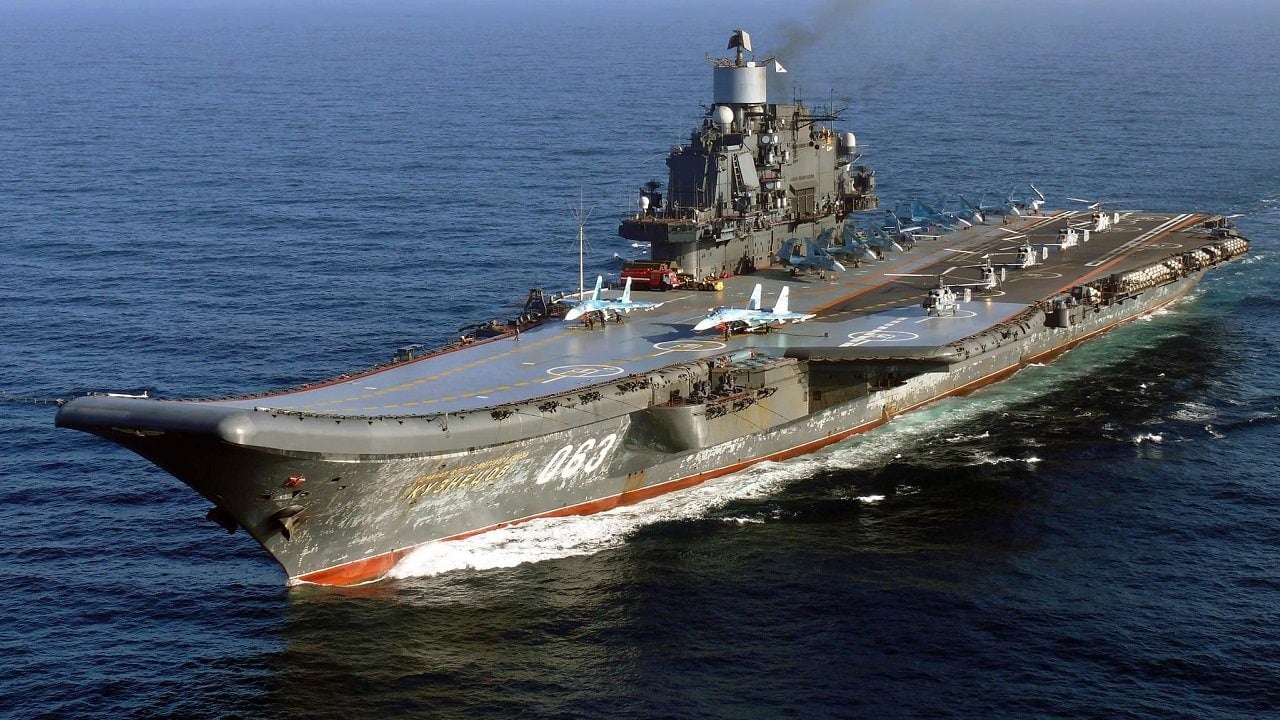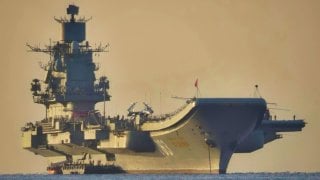Russia Needs to End Its Admiral Kuznetsov Aircraft Carrier Nightmare
The Russian aircraft carrier Admiral Kuznetsov is widely regarded as the world's worst carrier due to its numerous operational failures, including catching fire in 2022.
Summary: The Russian aircraft carrier Admiral Kuznetsov is widely regarded as the world's worst carrier due to its numerous operational failures, including catching fire in 2022.

-Despite significant investments in modernizing its military, Russia continues to maintain this outdated vessel, raising questions about its naval strategy.
-While some experts see the Kuznetsov as a symbol of Russia's decline, it's argued that Russia's real strength lies in its land forces and submarine fleet.
Admiral Kuznetsov: Russia's Embarrassing Aircraft Carrier Saga
Mothballing the Kuznetsov could allow Russia to refocus resources on more vital areas of defense. Regardless, the carrier remains an embarrassment for Russia, underscoring its naval shortcomings.
Russia’s Admiral Kuznetsov is considered by most experts to be the world’s worst aircraft carrier. The decades-old, smoke spewing, slagheap of a warship continues blighting the otherwise pristine High Seas, evoking laughter and consternation all around. Back in 2022, the blundering boat caught fire forcing the Russians to send her smoldering ruins back to the drydock.
After nearly 40 years of shambolic service to the Russian Navy, given all the expenditures that the Putinist regime to modernize Russia’s forces to better counteract the perceived overland threat from NATO, isn’t it about time for the Russian government to retire this jalopy?
My colleague, Harrison Kass, believes that the Russians may finally retire the Admiral Kuznetsov, putting both it and the Russian Navy out of its collected misery. Yet, where our take diverges is in Kass’ assessment that the Admiral Kuznetsov is a symbol of Russia being a “hallowed out” or declining state.
Certainly, Russia is not (and never truly has been) a dominant naval power. Specifically, the Russian Navy has never even tried, until the Admiral Kuznetsov experiment, to be an aircraft carrier power.
Where Russia makes a difference is on land. After all, Russia is a mostly landlocked, nuclear-armed great power. Although it has been cut off by the wealthy Western nations because of its illegal invasion of Ukraine, the fact is that Russia is winning in Ukraine.
Russia is a land power and always has been. In that regard, Russia continues to be a strong player on the world stage.
But their aircraft program?
It’s a sinking disaster. It would, however, be very dangerous to read into that and extrapolate the failures of the Admiral Kuznetsov and argue that it represents a wider failure or decline of Russia. In fact, given how close to China the Russians are getting, it is very possible that the two powers will begin jointly developing flat tops over the next decade.
So, mothballing the Kuznetsov might be just the opposite of Russian decline. It very well may be the kick in the pants that Russia’s naval planners require to start charting a new course for the Russian Navy’s failing aircraft carrier program.
Or it might be the final nail in the coffin for Russia’s aircraft carrier ambitions. After all, Russia’s real maritime strength lies in its submarine fleet. Putting the Kuznetsov to rest might free up the resources for Russia to make more strides in the far more important submarine domain.
One thing is certain, the Admiral Kuznetsov is an enduring national embarrassment for Russia. For a nation and government so committed to chest-thumping displays of national pride, it remains a mystery as to why the Russian military has continued trotting out the Kuznetsov whenever it can. Because the dilapidated carrier, as Harrison Kass argued in his piece, makes it look as though Russia is on its last legs.
Whatever the real conditions of Russia’s wider military, the Kuznetsov is a hopeless vessel. It is an albatross upon Russia’s Navy. Moscow would be better off scrapping the warship and moving on.
Still, as an outside observer, it’s quite humorous seeing the rusted-out tin can—what England once referred to as a “Ship of Shame”—attempt to sail out of port every now and then.
About the Author
Brandon J. Weichert is a former Congressional staffer and geopolitical analyst who is a contributor at The Washington Times, as well as at American Greatness and the Asia Times. He is the author of Winning Space: How America Remains a Superpower (Republic Book Publishers), Biohacked: China’s Race to Control Life, and The Shadow War: Iran’s Quest for Supremacy. Weichert can be followed via Twitter @WeTheBrandon.
All images are Creative Commons.


